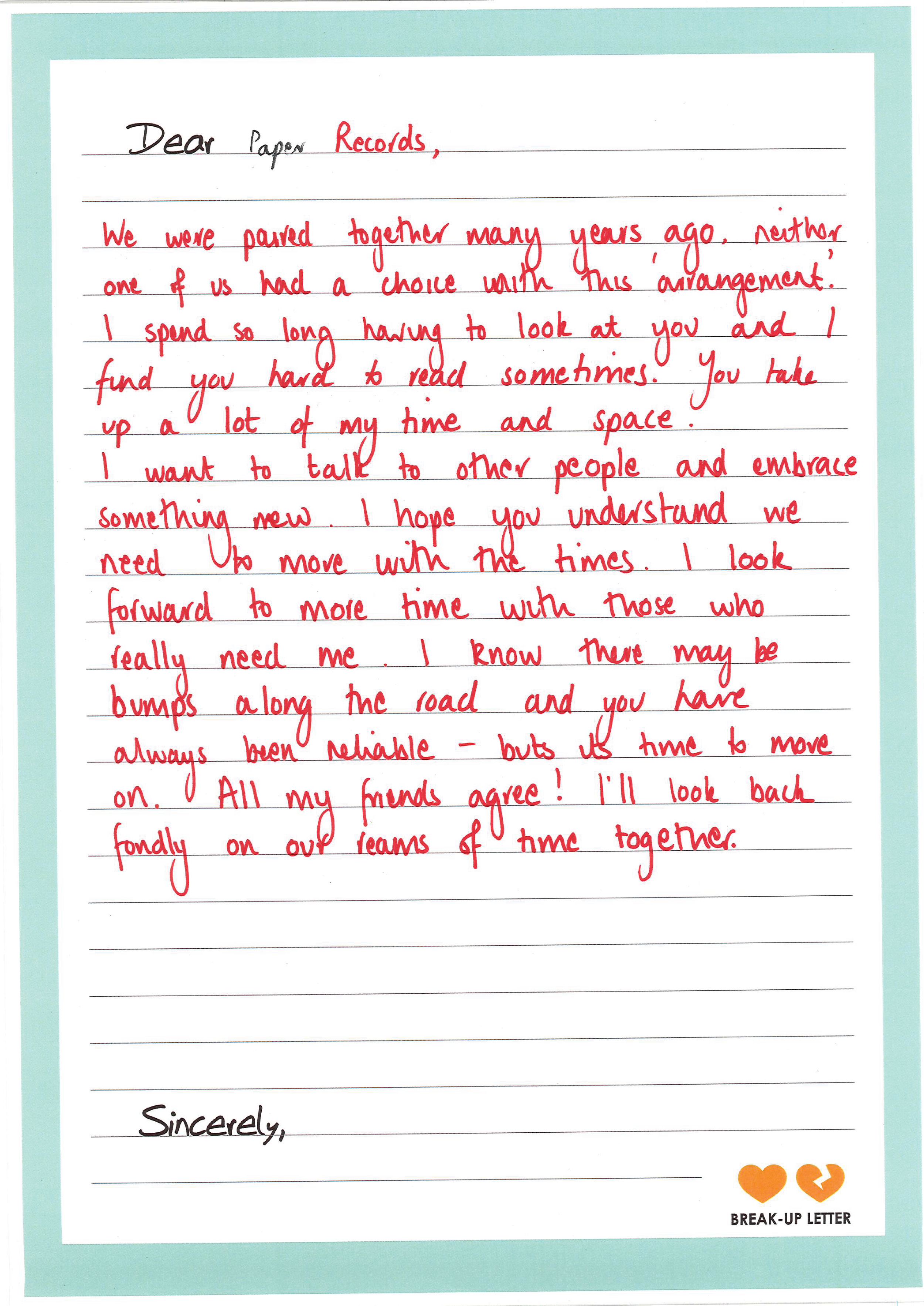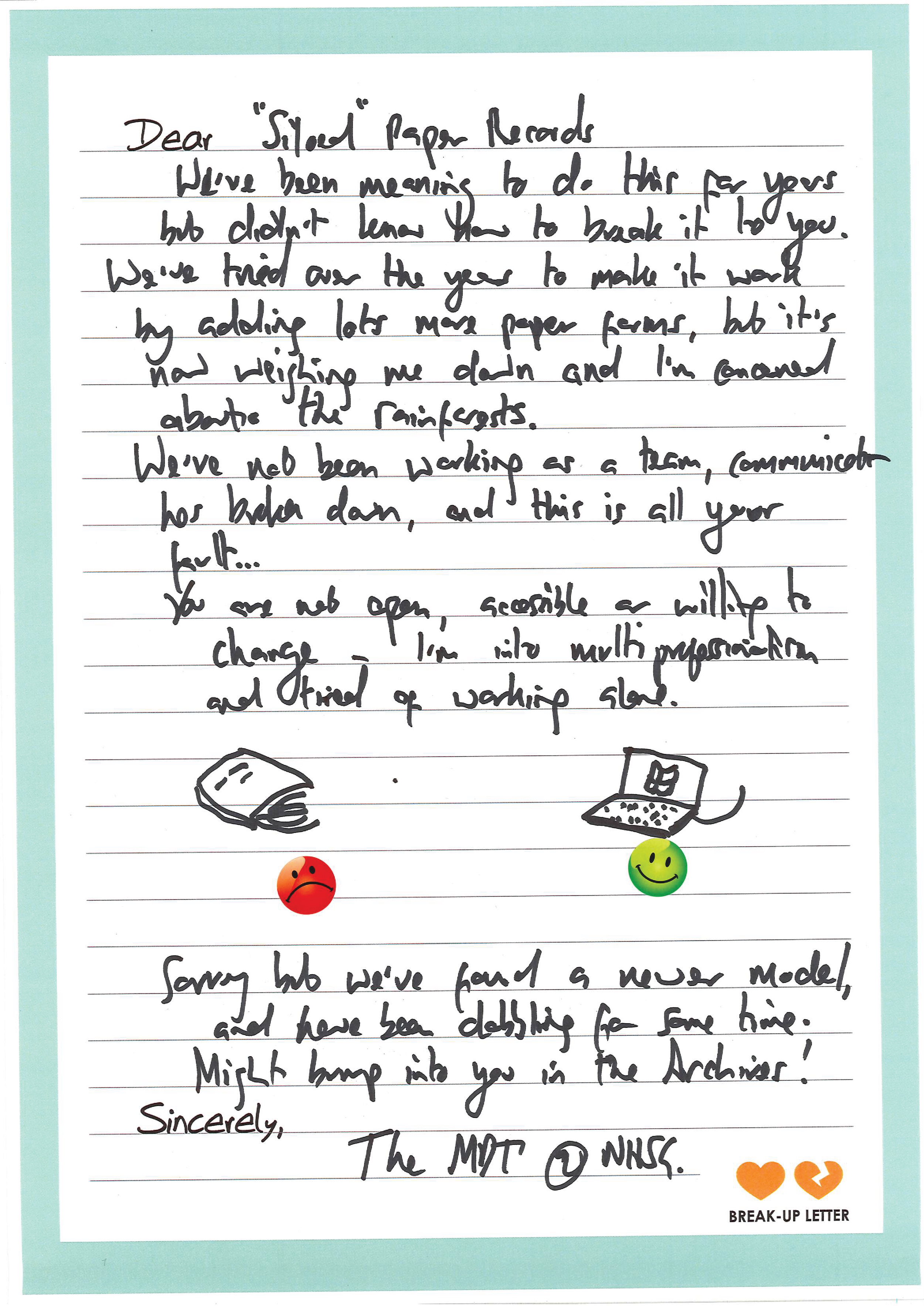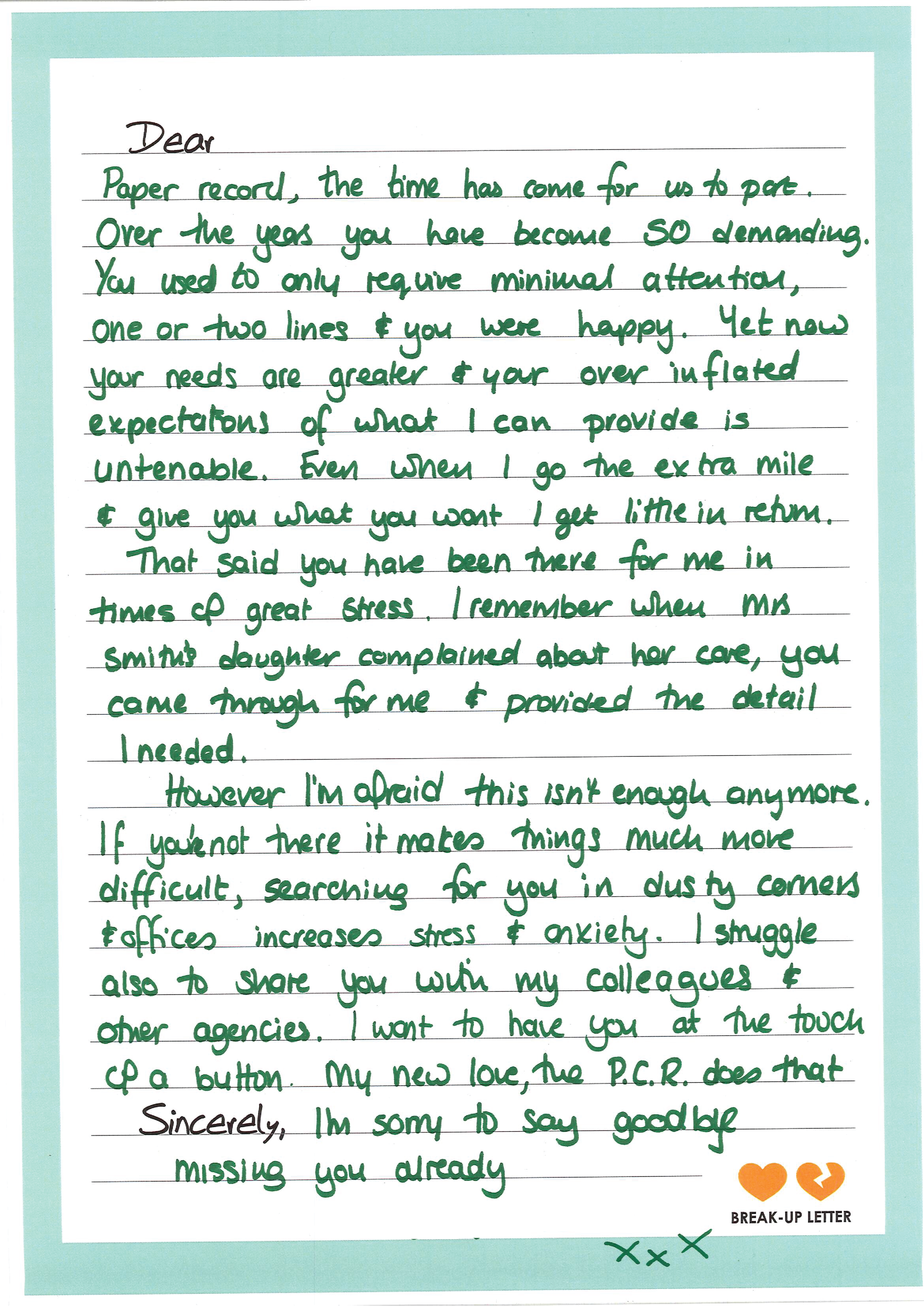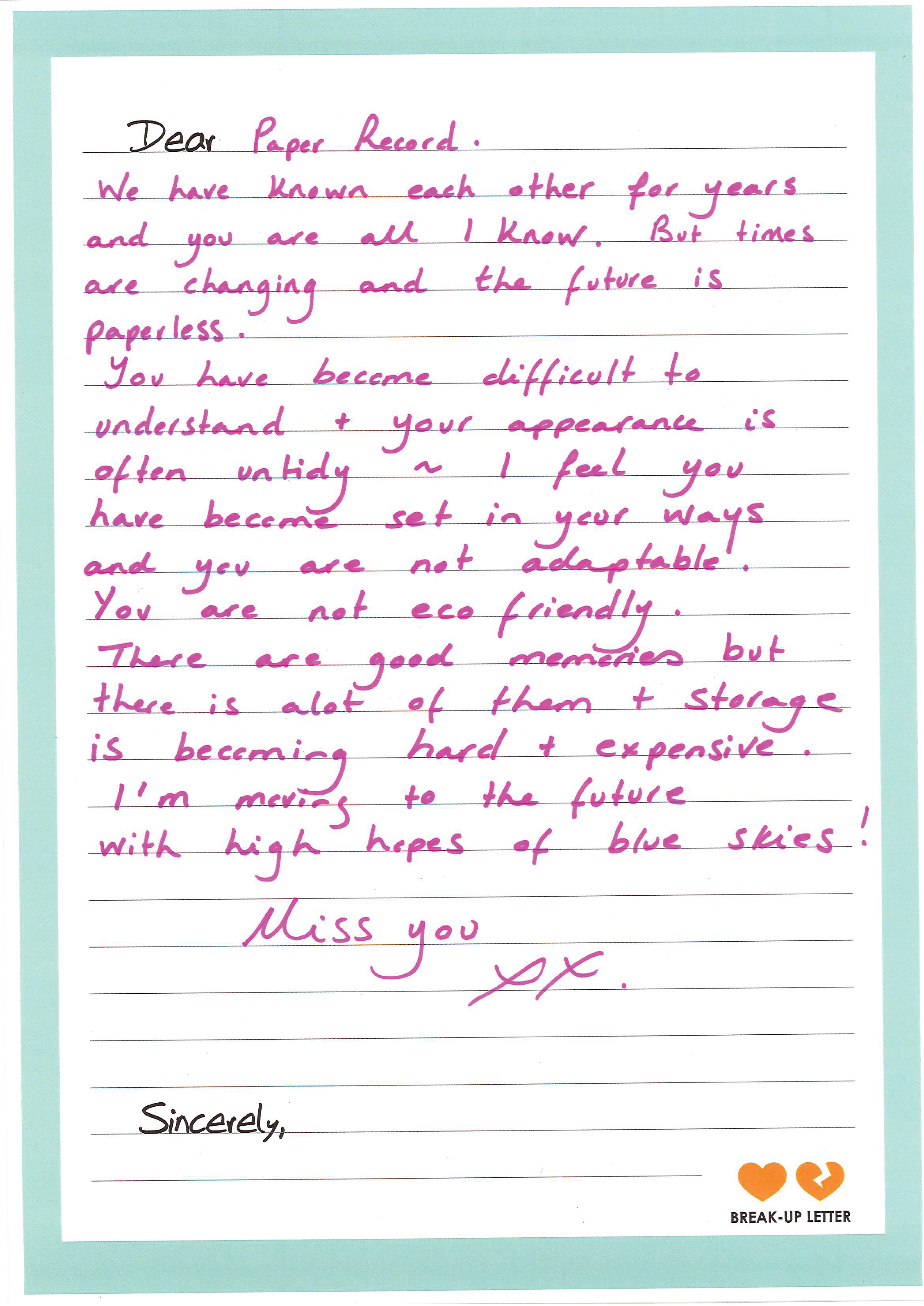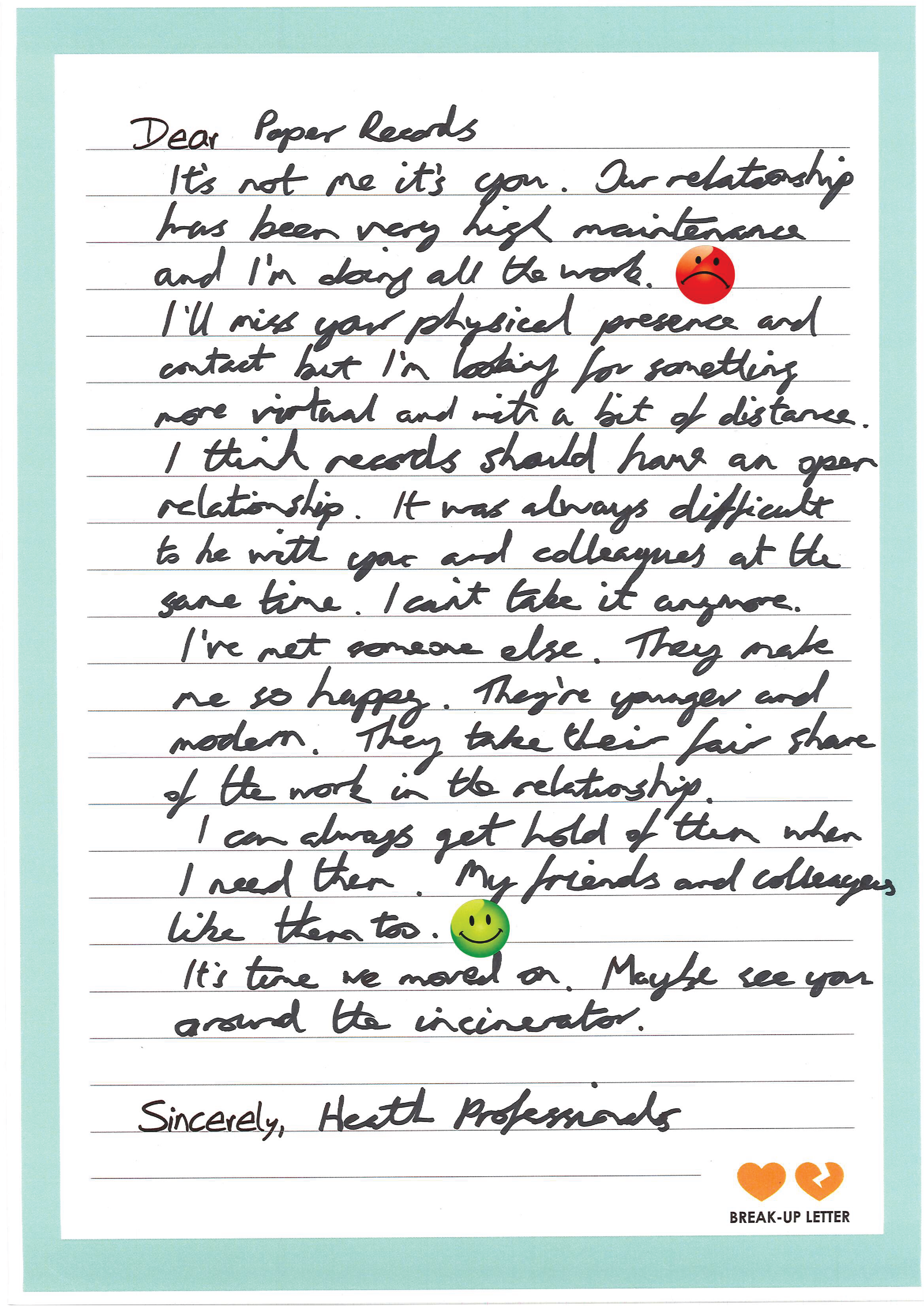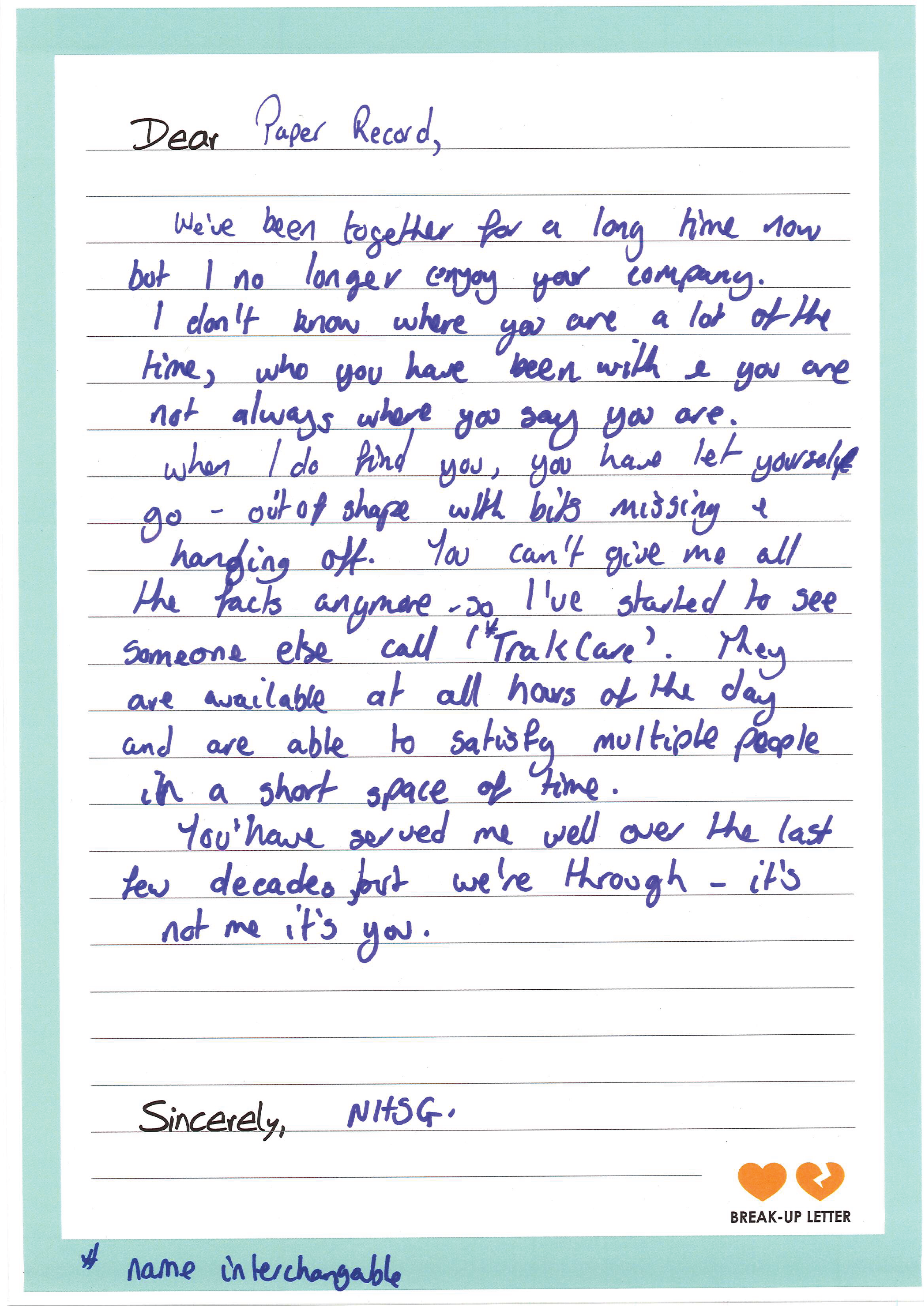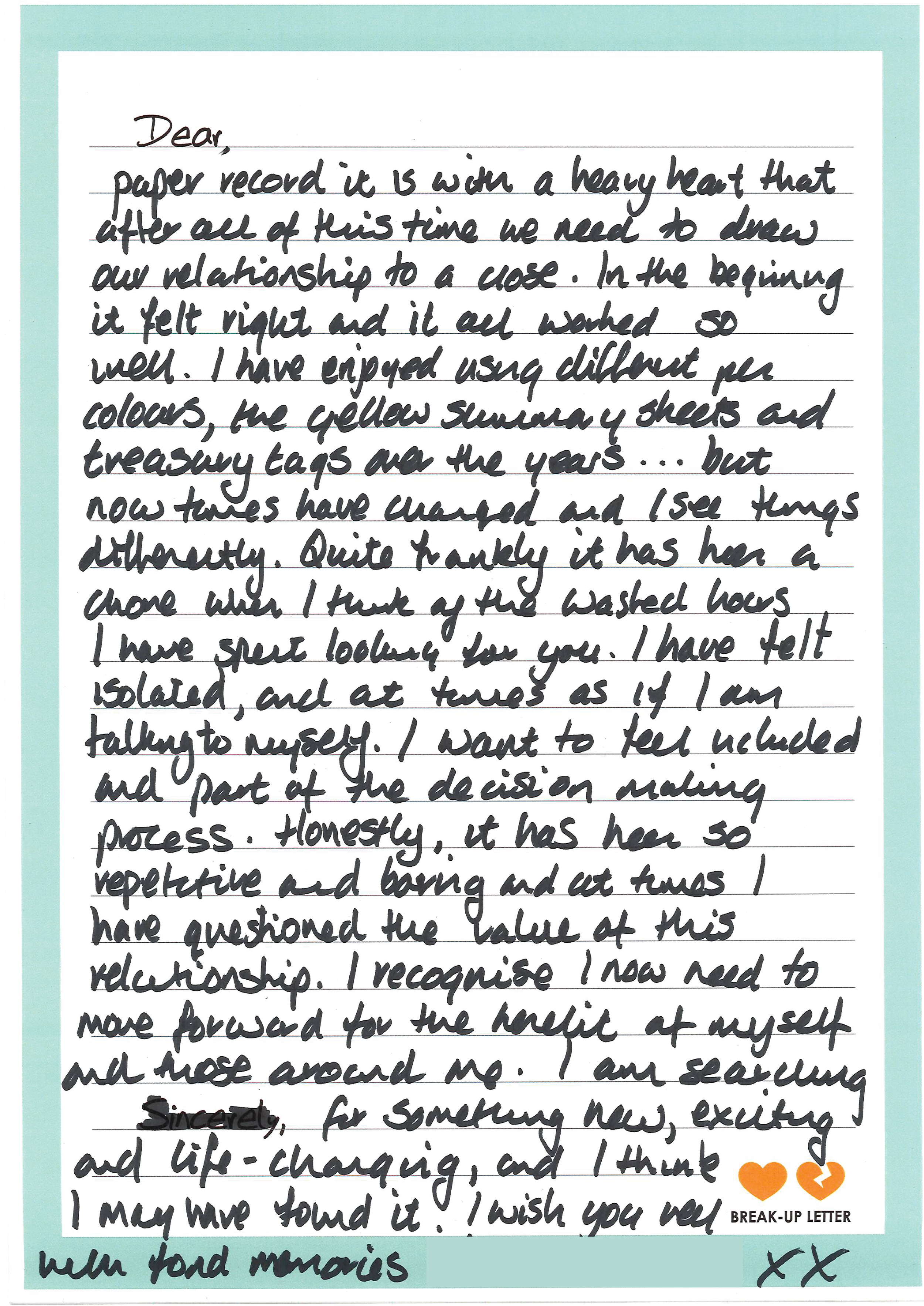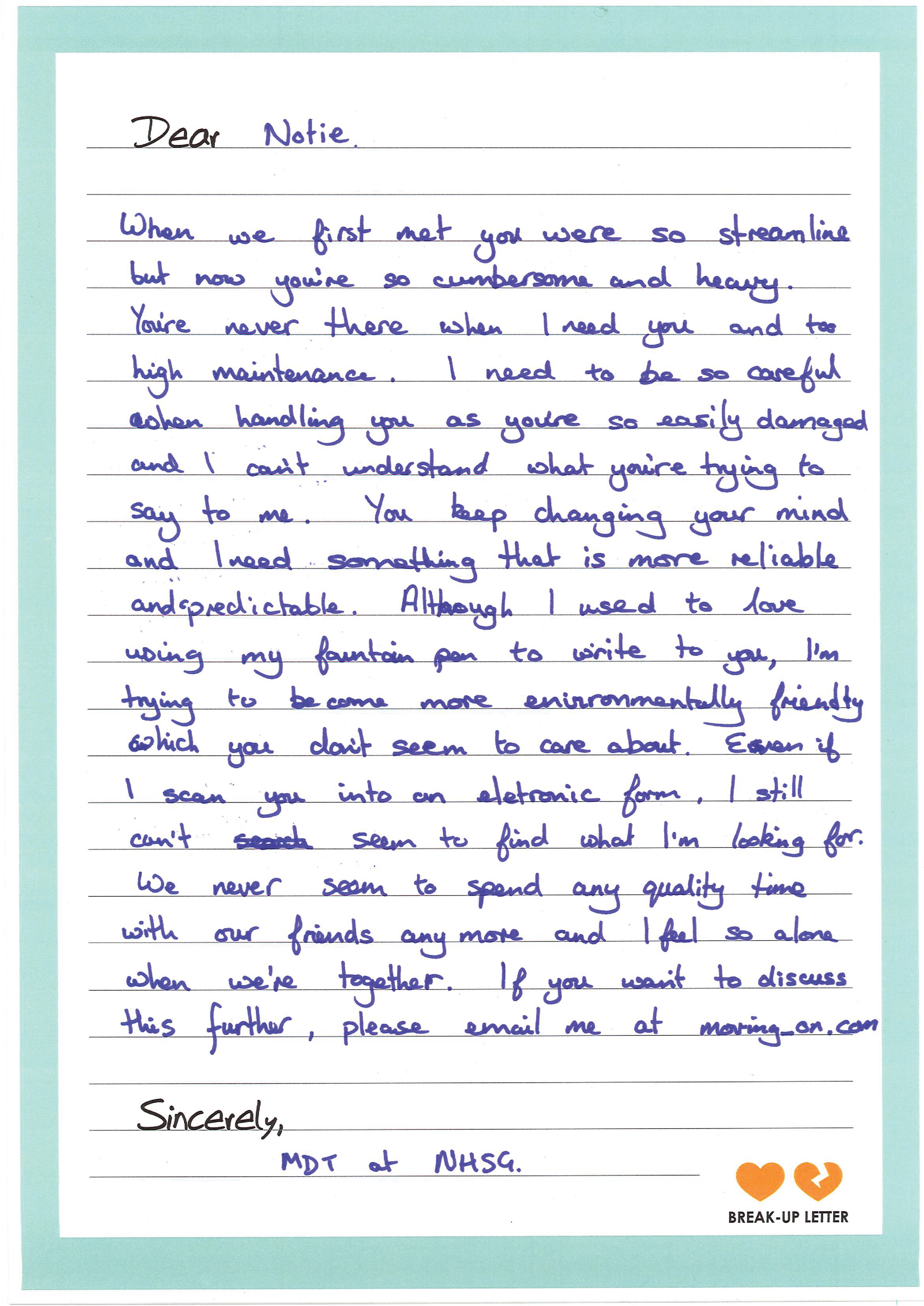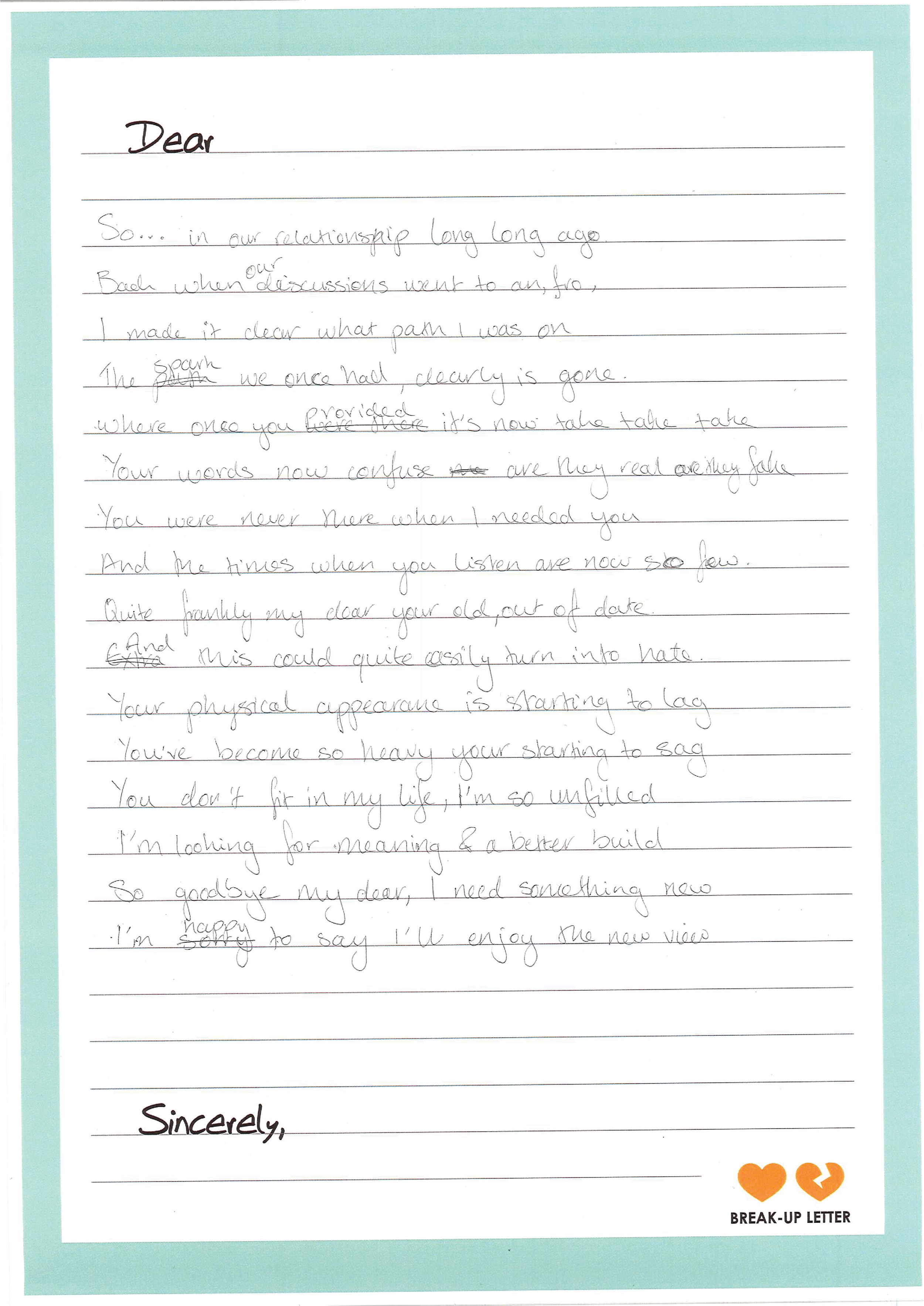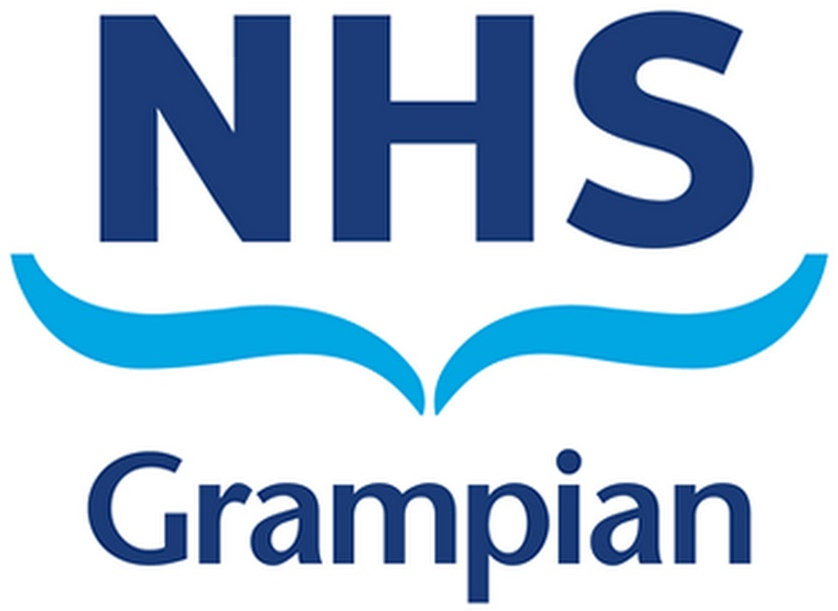PERSON-CENTRED RECORDS: quarter 4 Report
Recommendations and Requirements
This report covers the ongoing activity of co-design prototyping workshops run in the final quarter of the year-long Person-centred Records project. Please note that this report has been produced by researchers in partnership with NHS Grampian staff and the following content serves only as recommendations made to NHS Grampian.
“We’re re-designing our process to digitalise it. And that’s the innovation around what we’ve done.””
Recommendations for future work
A co-planning activity yielded four broad tasks to undertake in order to become truly multidisciplinary: seeking permission from NHS Grampian’s senior leadership team to continue the work as outlined in this report; produce a document detailing how NHS Grampian staff can work to agreed internal multidisciplinary standards and be sure that they are still meeting their own governance standards; transfer in-patient documentation to a small number of common formats; an ongoing process of learning what multidisciplinary record keeping best practice is and; developing tools to support multidisciplinary working.
Partners from NHS Grampian then led a discussion on how to take the above recommendations forward in working groups, asking who should be involved, why the recommendation is important, what actions need to take place, where and any ideas for taking these forward.
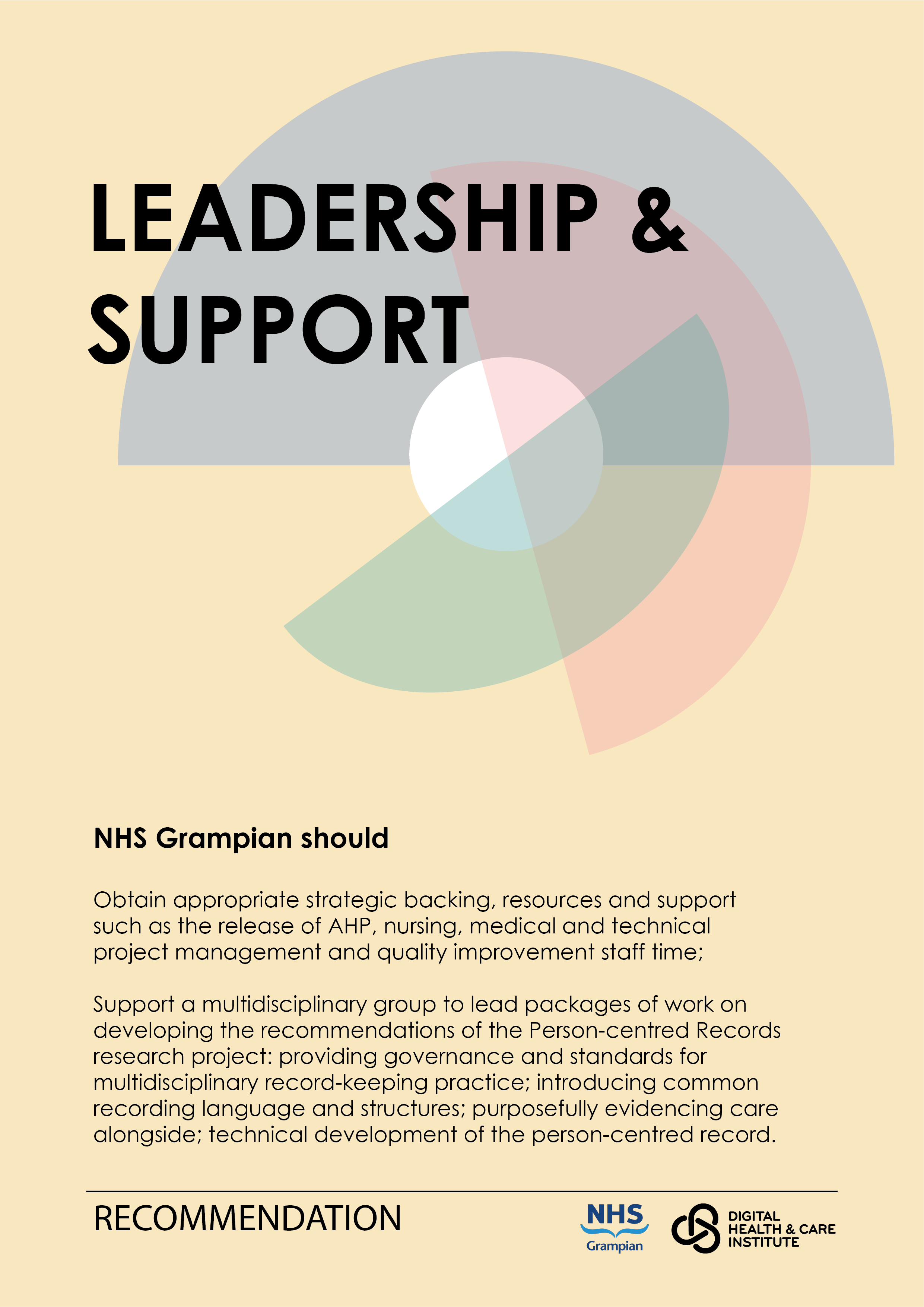
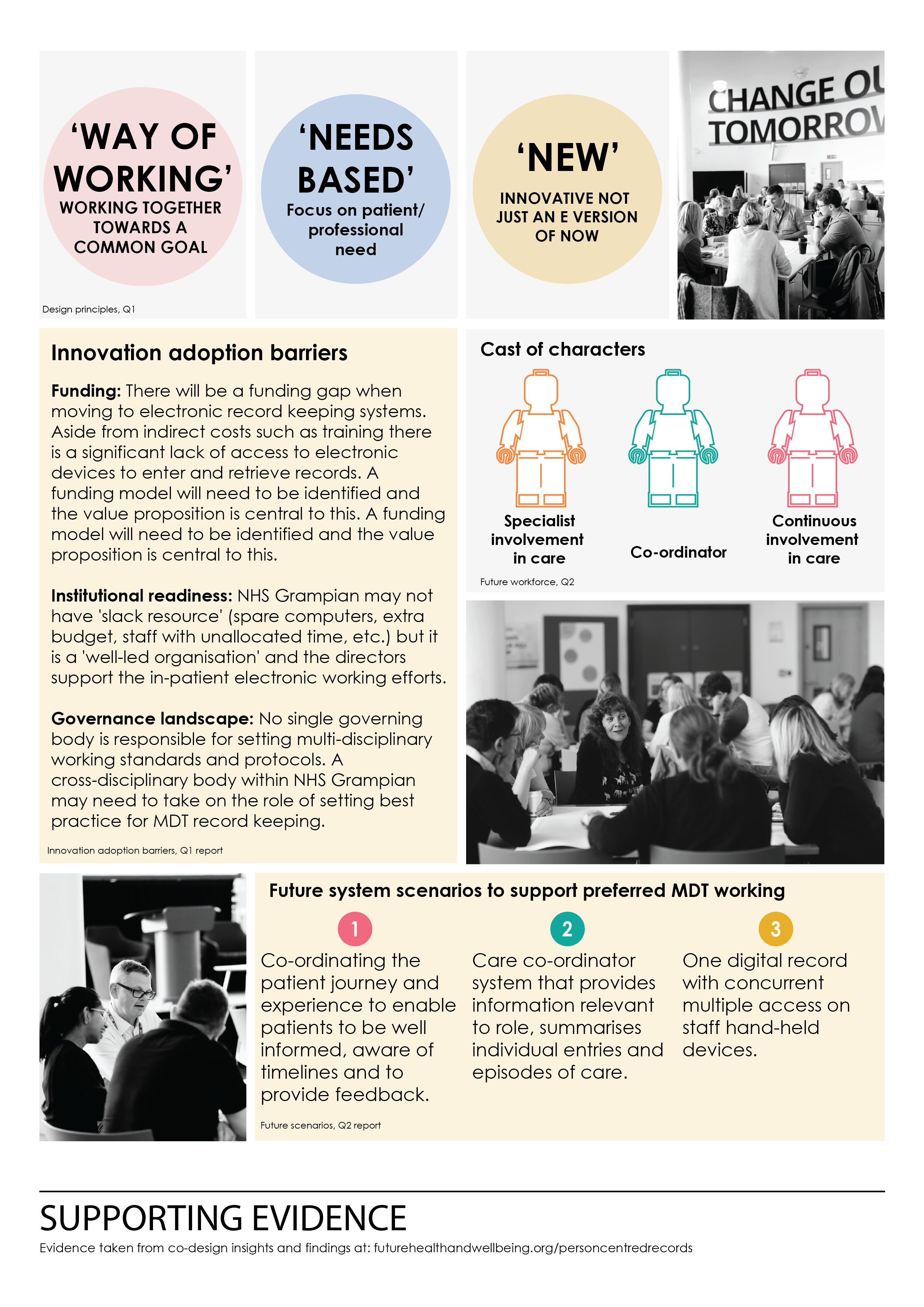
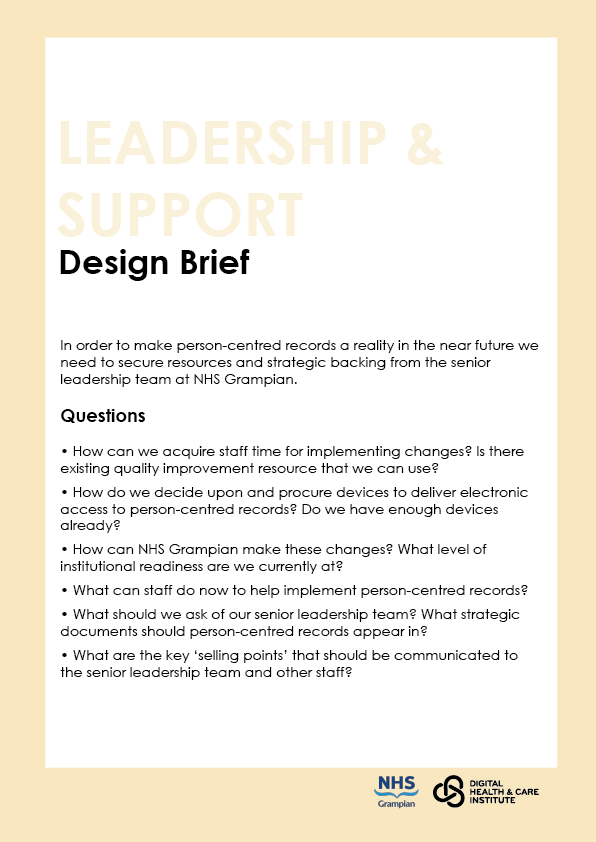
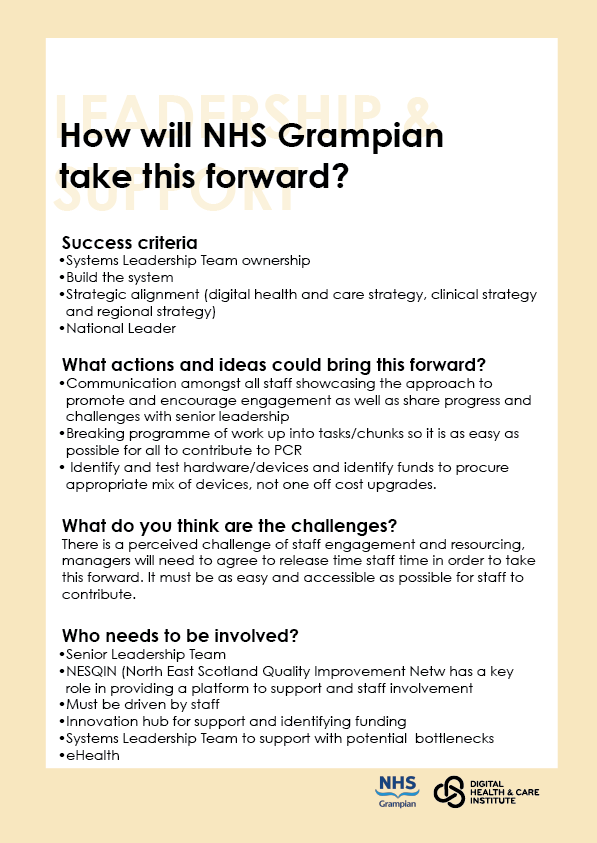
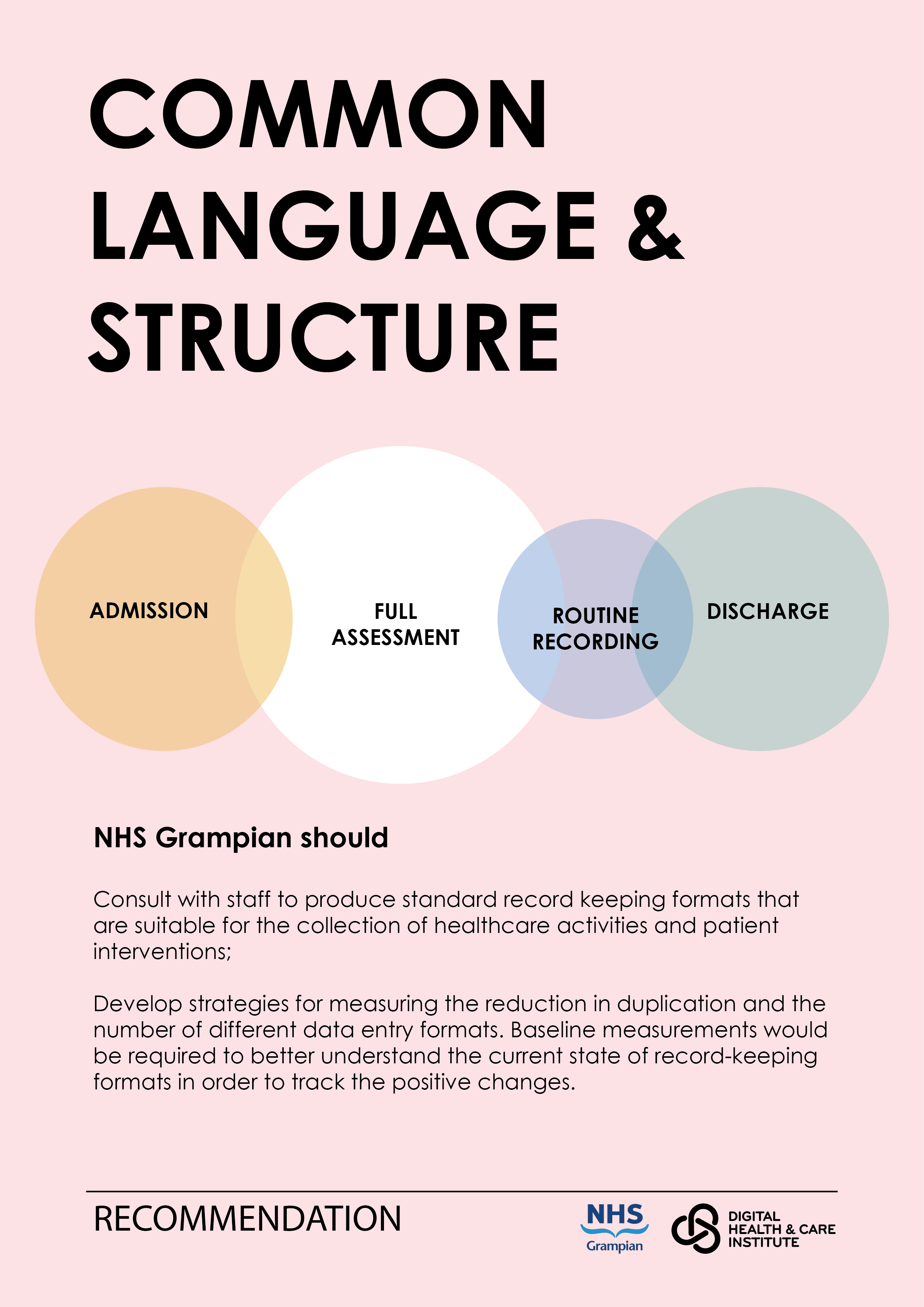
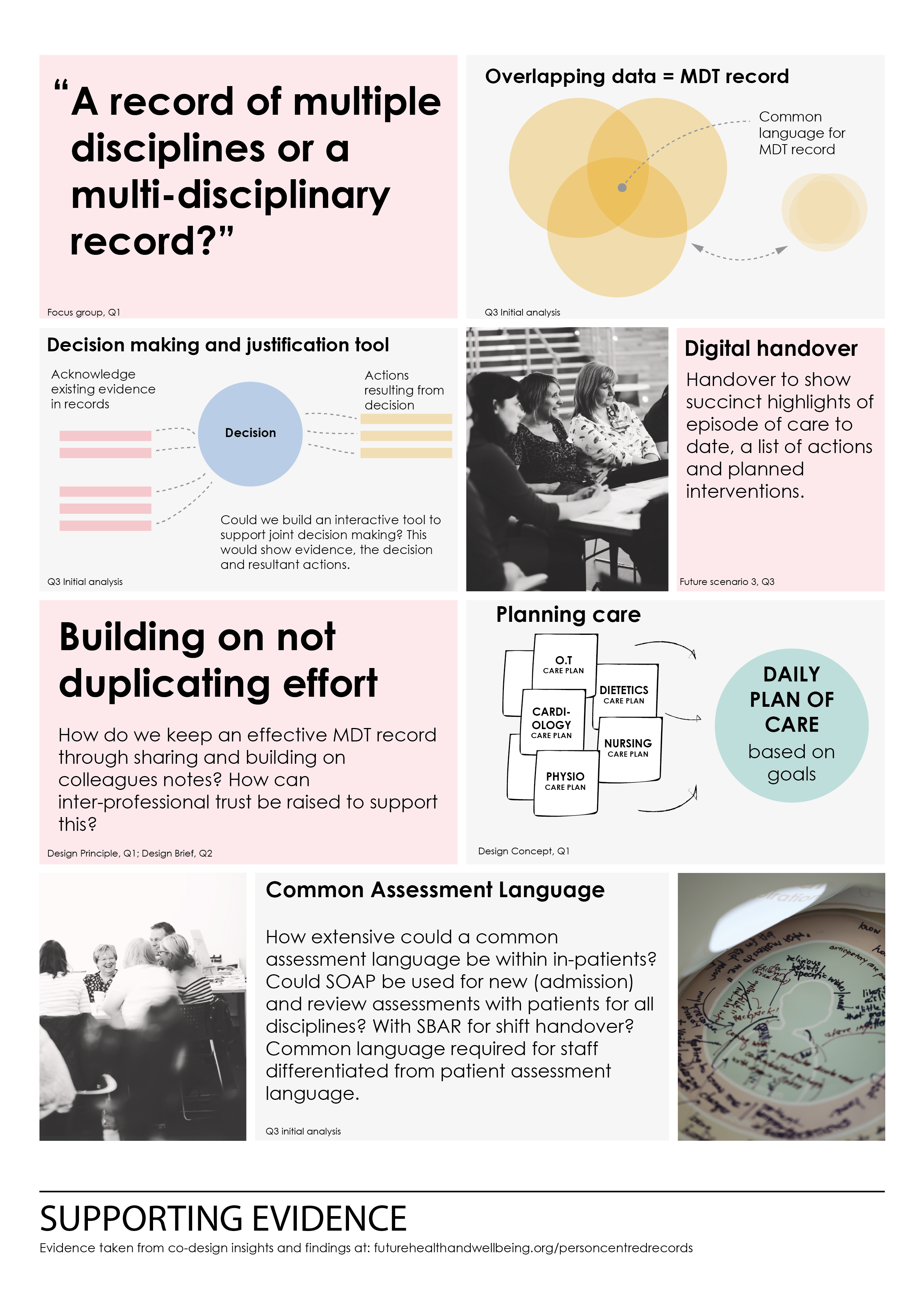
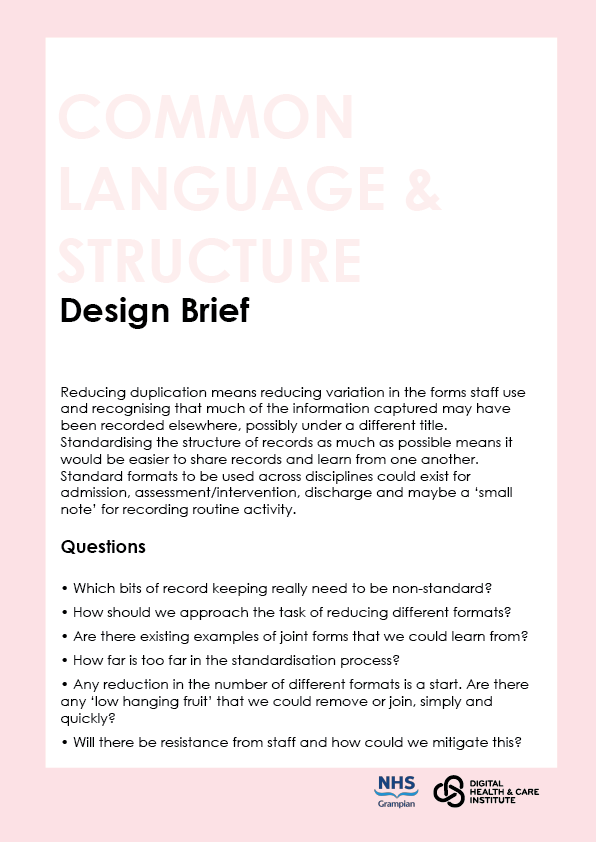
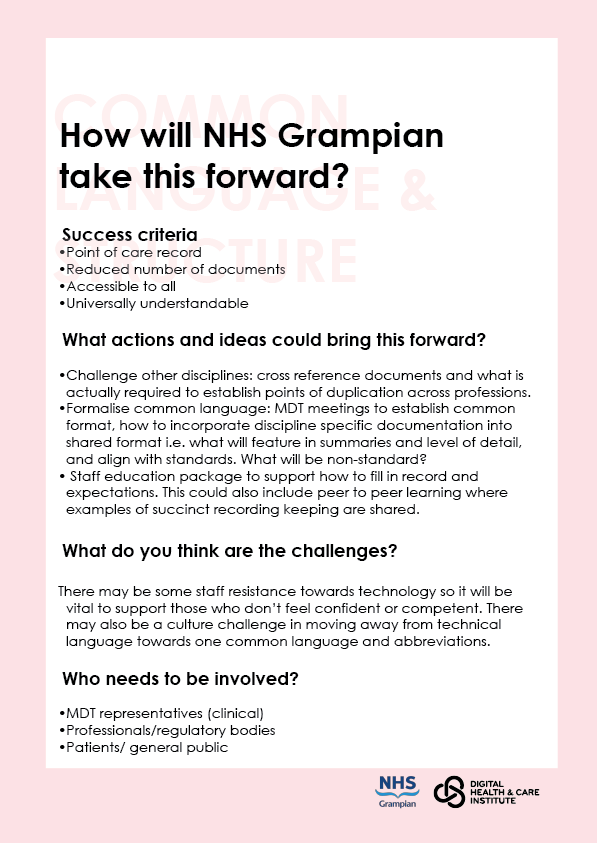
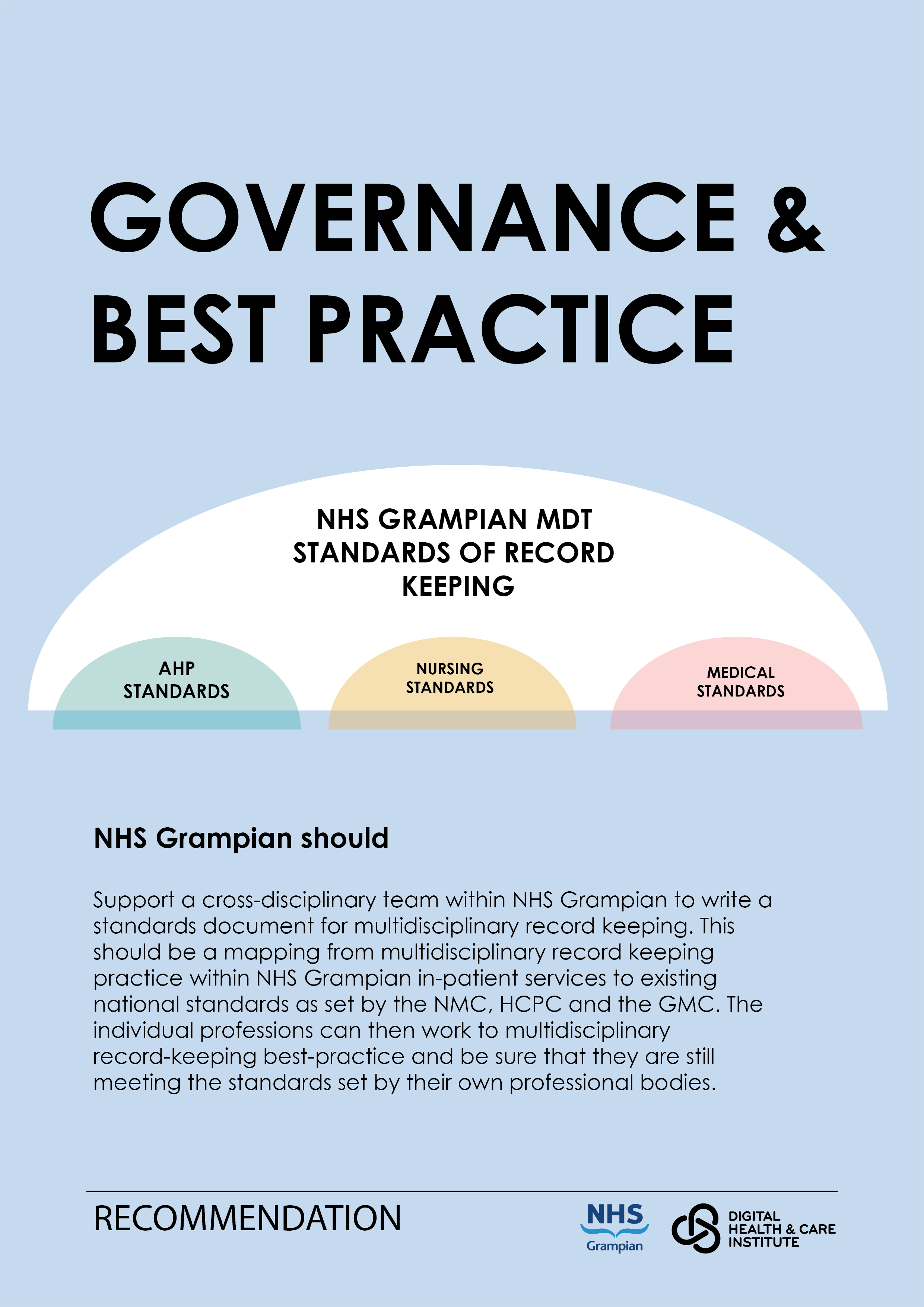
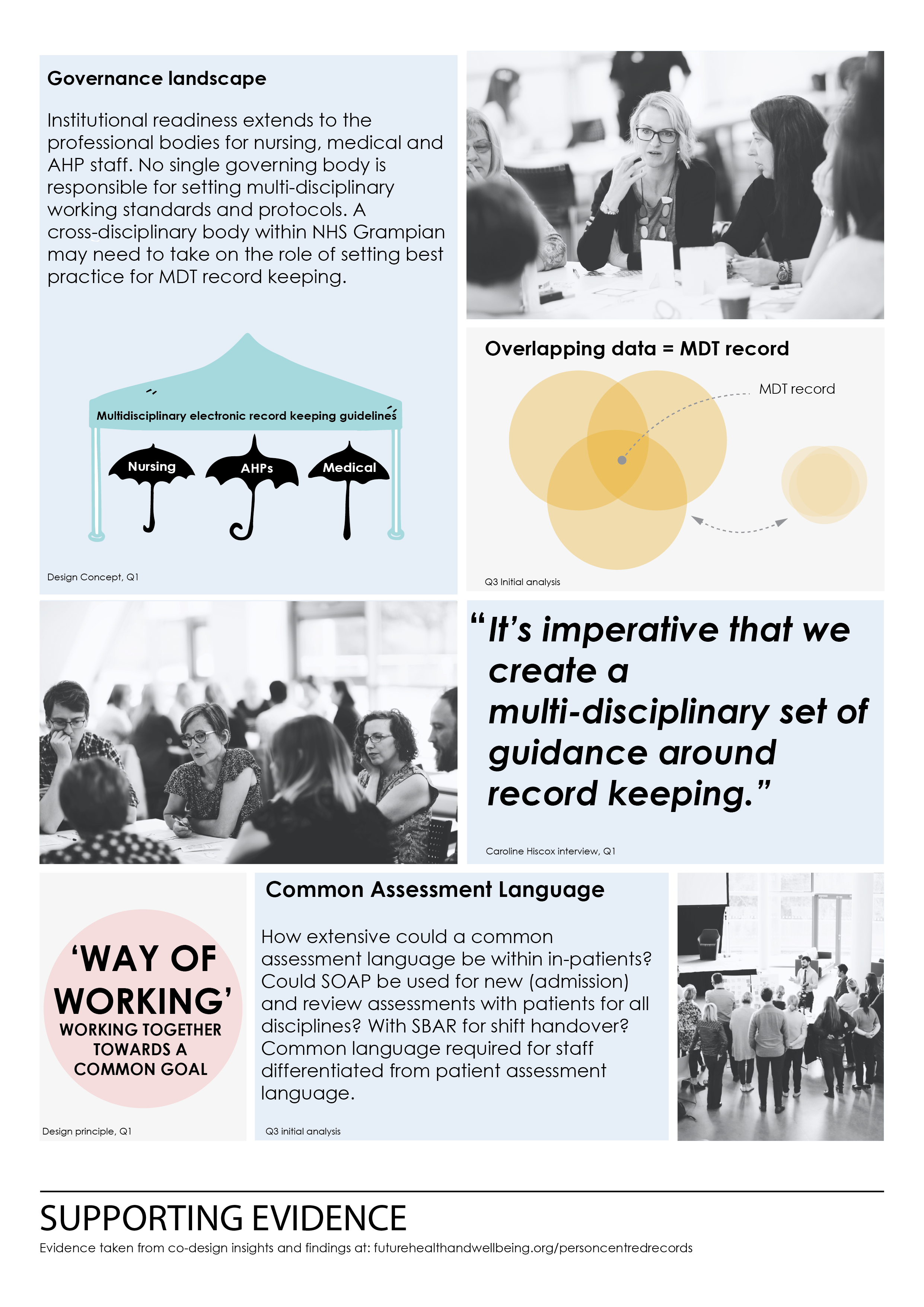
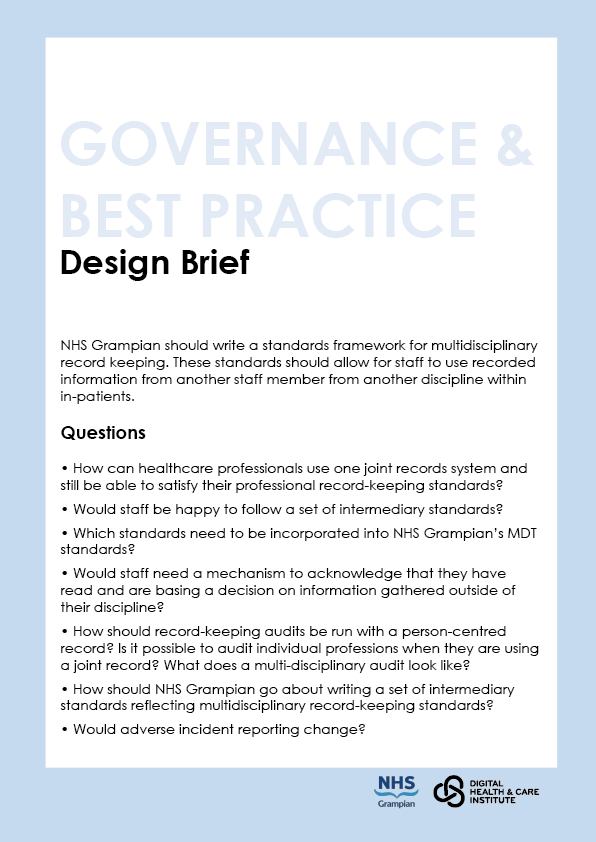
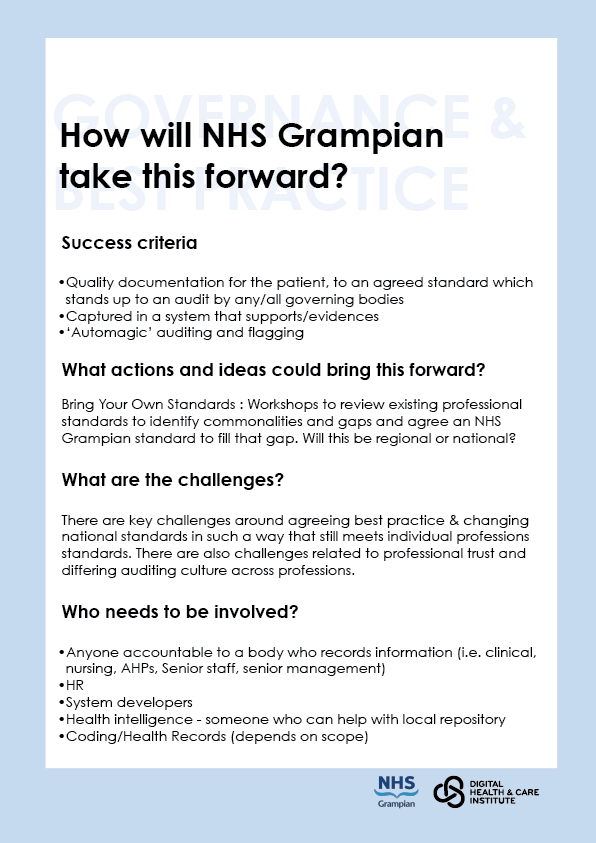
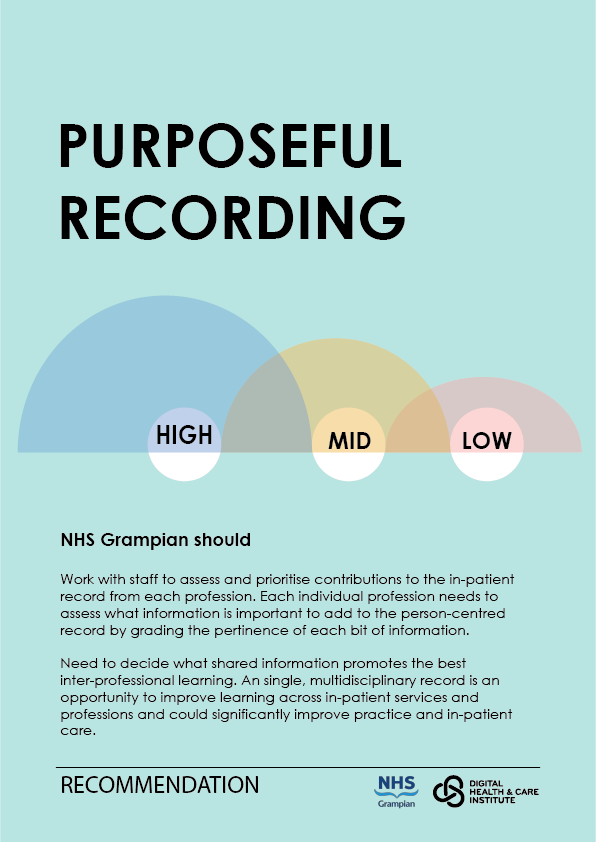
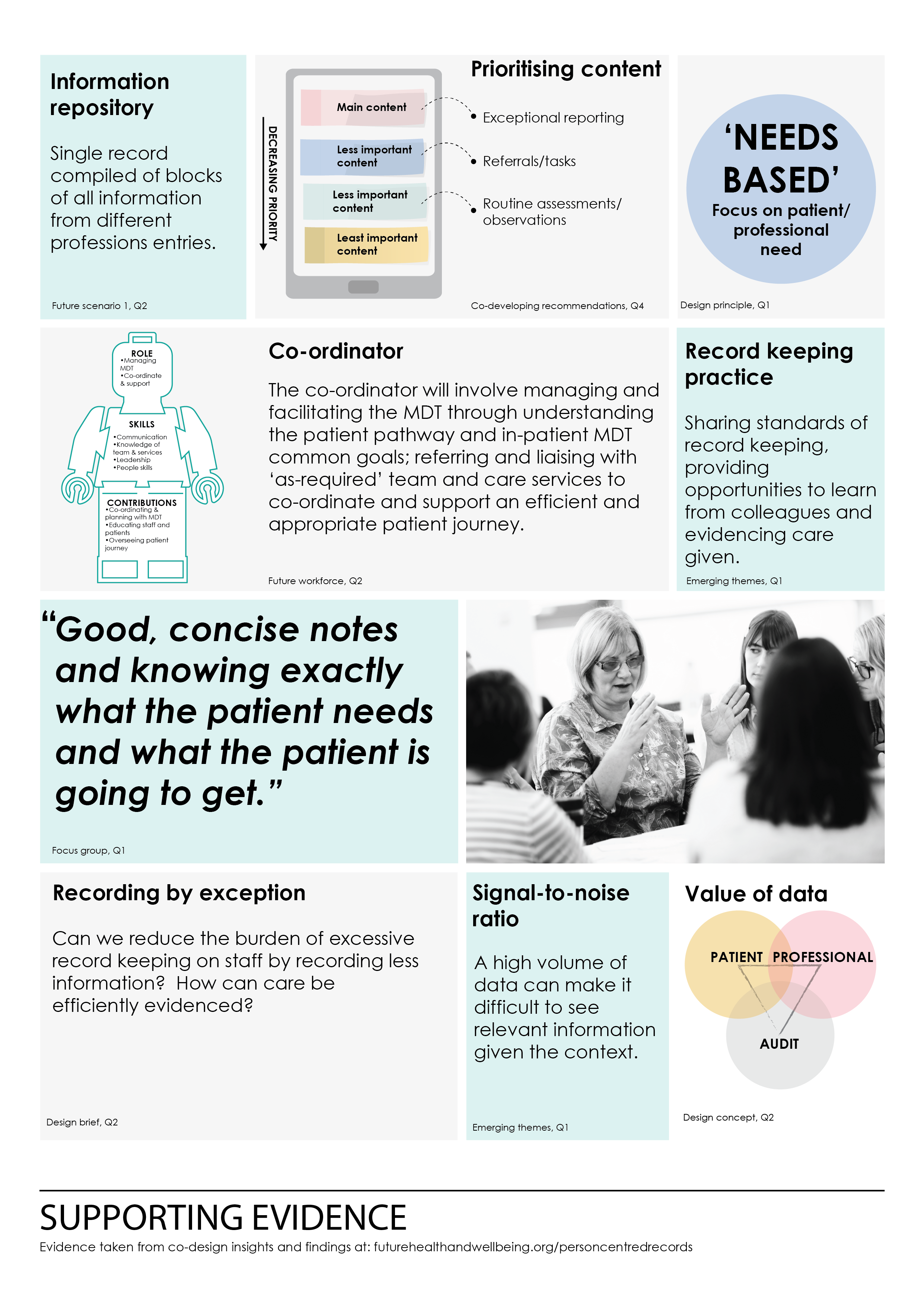
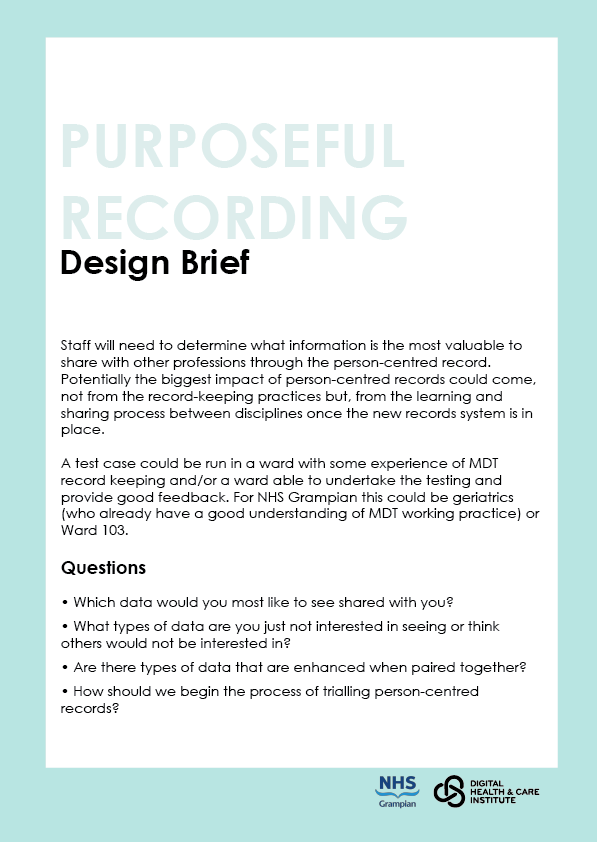
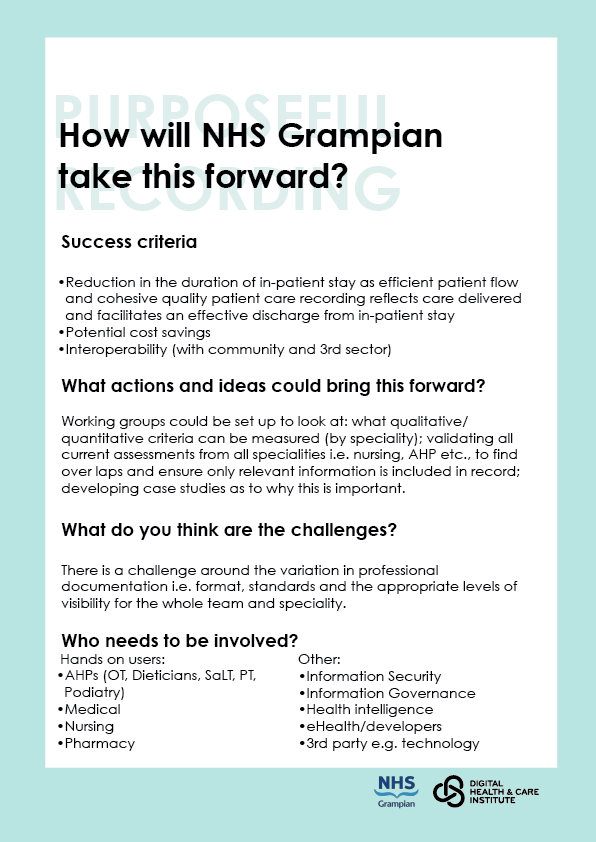
“...people would audit the audits, everyone just knows what their own one is, they don’t know where the gaps are and maybe there’s huge gaps and there is a serious bit of work around that.””
There are still a number of perceived challenges, similar to Q1, such as developing professional trust, moving from a siloed record keeping culture to a collaborative record keeping culture, auditing culture where everything is monitoring separately by separate bodies, interoperability (of systems but also in sharing across platform to community and 3rd sector). However, across all of the discussion on the recommendations it is clear that there are core activities NHS Grampian could undertake to support the progression of Person-centred Records going forward, particularly around promotion of the work and the approach taken, why it is important, the potential impact of adopting a new way of working in order to make a case for change which is supported by both senior leadership and staff ‘on the ground’. It was also important across all of the discussions that the discussions continued to be multi-disciplinary and involvement in activity should be made as easy as possible.
Through using the co-design workshops as a spring board to further collaboration, participants discussed a need for undertaking an evaluation of standards and documents in order to compare and contrast. An earlier report under taken by DHI could serve as a basis for this comparative piece of work.
“A quality record about that patient’s journey, that they got the right things at the right time... and our record evidences that.””
Requirements of the multidisciplinary record
“This exercise is just the start, we’ve got some good feedback from this but there’s a lot more to be investigated to translate the ideas that we’ve got to [...] the full patient work-flows and all of these things’, so using this as a foundation. ”
A break up letter written to paper records
As a way of signifying a multi-disciplinary shift from paper-based to electronic joint working, participants were asked to consider why they are still in a relationship with paper records and siloed working and write a letter representing the reasons staff are breaking-up with this way of working. Why did you love them? What have you been through, both positive and negative? Finally, why are you breaking up with them now?
TIMELINE of activity
ACKNOWLEDgMENTS
We would like to thank the project team for all of their support. We would also like to thank all of our interview participants for giving up their valuable time and for generously sharing their thoughts and experiences of current record keeping as well as everyone involved across the programme for sharing their ideas, insight, experience and bringing their creativity and energy to all of the co-design sessions. We are grateful to NHS Grampian for supporting this programme and encouraging so many staff members to be involved.
Finally, we would like to thank our colleagues at the GSA and DHI for their support with the workshops and analysis, for undertaking desk research to aid the project and supporting us from a technical perspective.
Authored by Jay Bradley and Angela Bruce from the Digital Health & Care Institute/ Innovation School at the Glasgow School of Art, March 2020.

